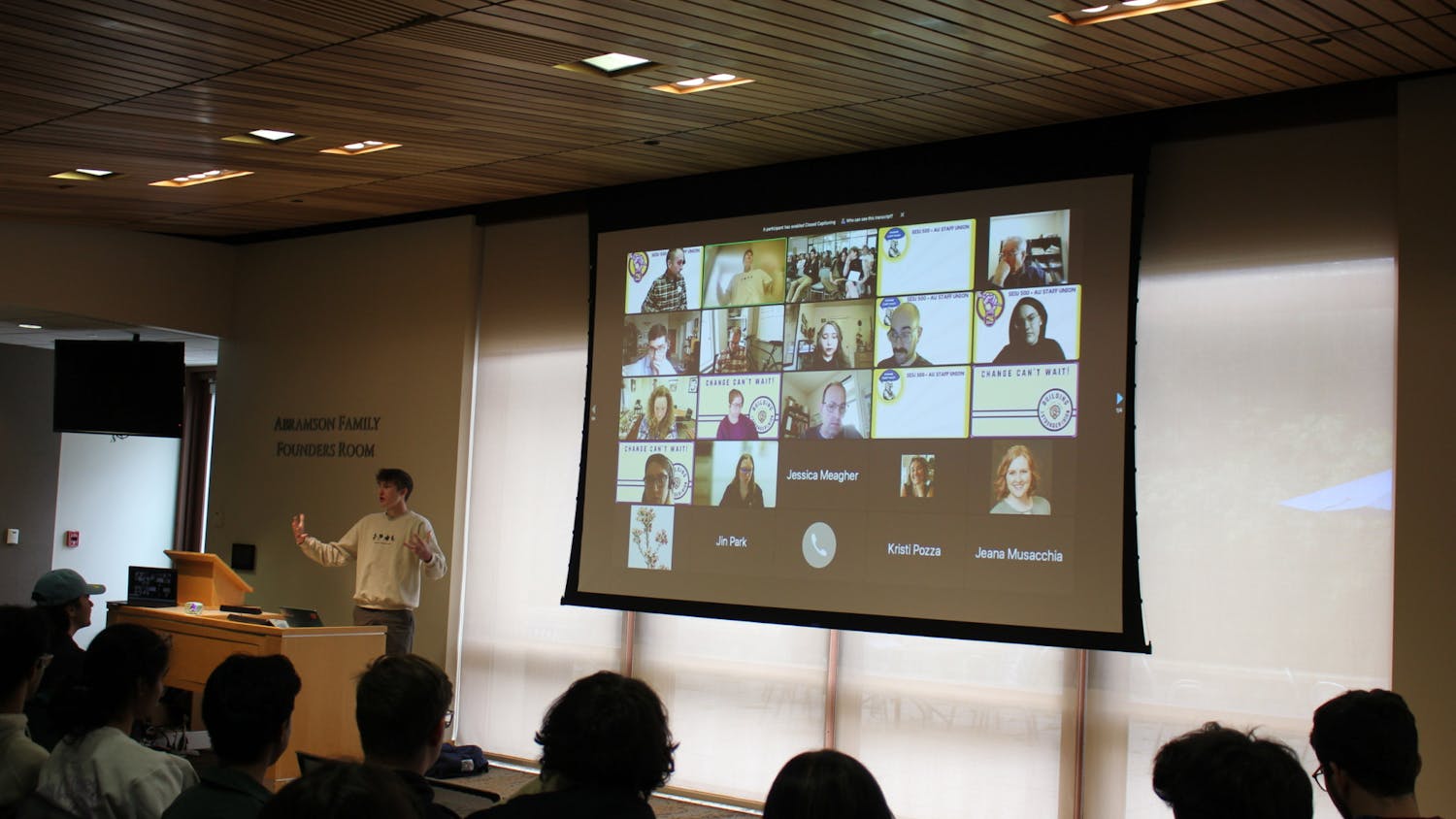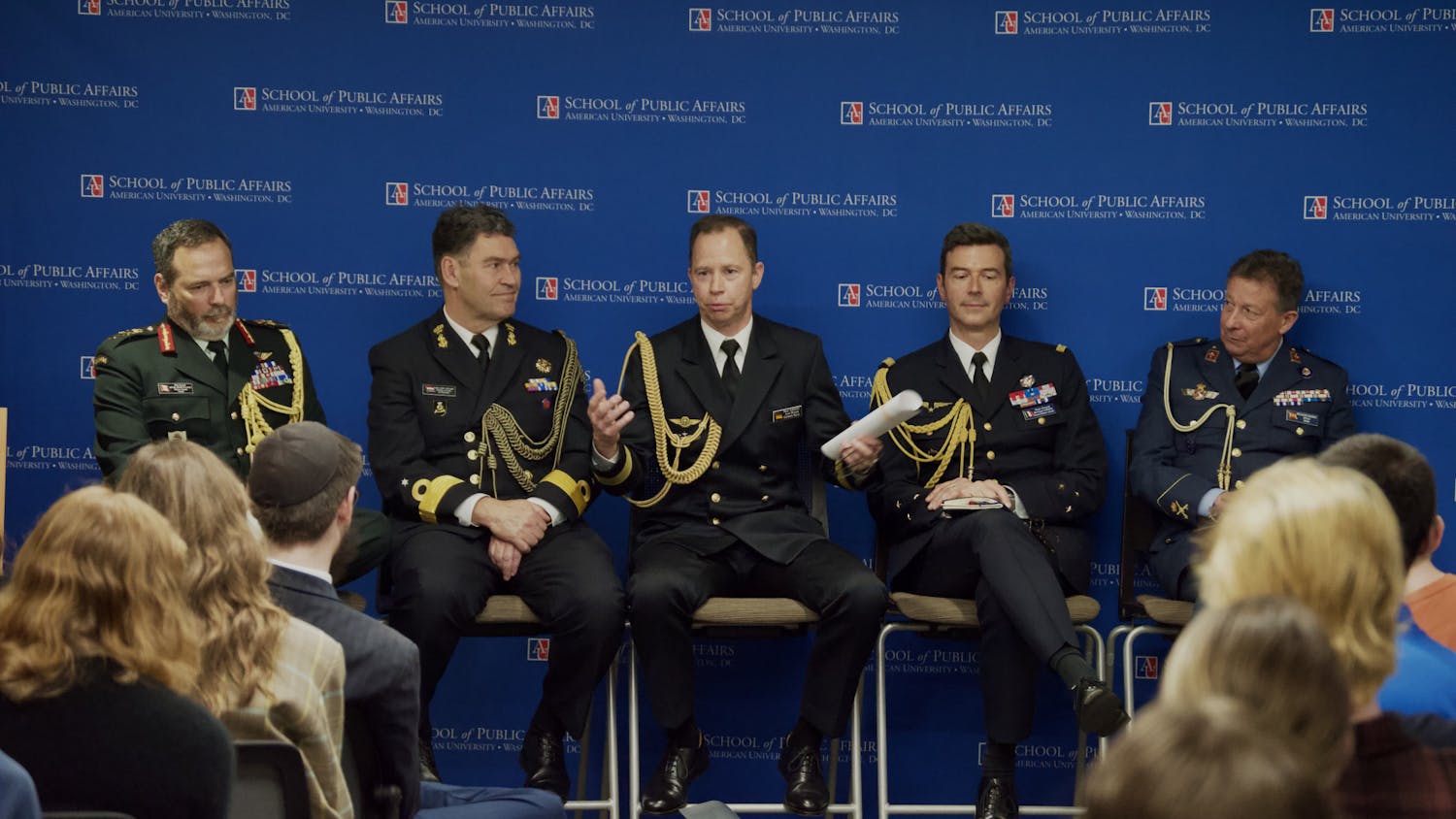The Undergraduate Senate held a five-hour-plus meeting Sunday, several hours of which were closed to anyone except the body's members, to discuss legal matters involving allegations of AUTO van misuse.
The senate unanimously passed a bill that would require oversight of the AUTO program, which Student Government President Seth Cutter vetoed. The senate then unanimously overrode the veto. During the closed meeting, the senate censured AUTO Commissioner Zack Schwartz, according to Justin Woods, the speaker of the senate.
Schwartz said he had not been told of the censure. He was upset by the senate's choice, he said.
"I'm disappointed by the move, because I would have hoped there would have been more on the future outlook of AUTO, especially something based on hearsay," Schwartz said.
SG Comptroller Eric Goldstein, whose office has oversight of the AUTO program, was unavailable for comment because he was out of town for the weekend.
The bill would require the comptroller to take more responsibility on overseeing the AUTO program, Woods said. A member of the Undergraduate Senate would also be responsible for the program's accountability, Woods said.
An anonymous letter sparked discussion regarding allegations of Schwartz using the program's vans without permission.
One of the accusations in the anonymous letter included information that there were additional miles on one of the vans.
At the time of the allegations, an official audit on the vans' odometers had not been completed since March 1, Schwartz said.
Other allegations included Schwartz using a van for his fraternity's use - a charge Schwartz said is not true. Several members of his fraternity, including himself, have cars, Schwartz said.
Sunday's senate meeting was closed during most of the body's discussion of the AUTO situation. The senate went into closed session because the situation involved a legal matter in which Public Safety was involved, according to Class of 2010 Sen. Colin Meiselman.
"There was a lot of legal issues, and we needed to discuss them frankly," he said. "There were particular things we couldn't go into in an open session."
However, Schwartz said he did not know what legal issues could have been discussed in the closed session.
"It's interesting that I wasn't in on the closed session because it was the AUTO program and I don't think they had an understanding of [the program]," Schwartz said.
He said the senate asked him about the mileage discrepancies during a question-and-answer. Those charges were cleared up through billing.
"All the allegations that can be accounted for, were accounted for," Schwartz said.
During the open session, KPU Director Bill DeBaun said he was upset about the bill's passage.
"[The senate is] essentially presenting a bill before this body without presenting facts," he said.
Part of the debate included the issue that many of the allegations were based on rumor or hearsay, Meiselman said.
"People wanted specific evidence in regards to some of the allegations that were made," he said. "I'm not exactly sure why we were in closed session as long as we were."
Though Cutter vetoed the bill, he said he agreed with the idea of oversight. He said he opposed the closed session of the senate, which he could not sit in the whole time.
"I didn't disagree with the principles in the bill, it was the manner in which it was done. I just don't believe in going into closed session," he said. "I understand that they were dealing with lots of sensitive information that was pending."
Woods said Cutter's frustration with the situation is justified.
"I absolutely understand where [Cutter] is coming from," he said.
The bill will still go to the immediate supervisors of AUTO, Cutter said. It is unlikely that the administration would have a role in this issue, he said.
Schwartz said he will not be returning as AUTO commissioner because he will be going abroad.
This discussion, though unfortunately held in closed session, was an effective way of maintaining the quality of the AUTO program, said Class of 2009 Senator Jeffrey Hanley. It is also proof of AUTO's capability to be student-run.
"Going on public record on a case that hadn't been adjudicated yet wouldn't have been beneficial to the students," he said.
This closed session was a special instance that stemmed solely from legal ramifications, Woods said.
"We strive on being open and transparent with the student body," Woods said.
Student Activities Director Karen Gerlach said she could not comment on the situation, which she said was an internal matter.
Eagle staff writers Tamar Hallerman and Lindsey Anderson contributed to this report.
You can reach these staff writers at news@theeagleonline.com.




